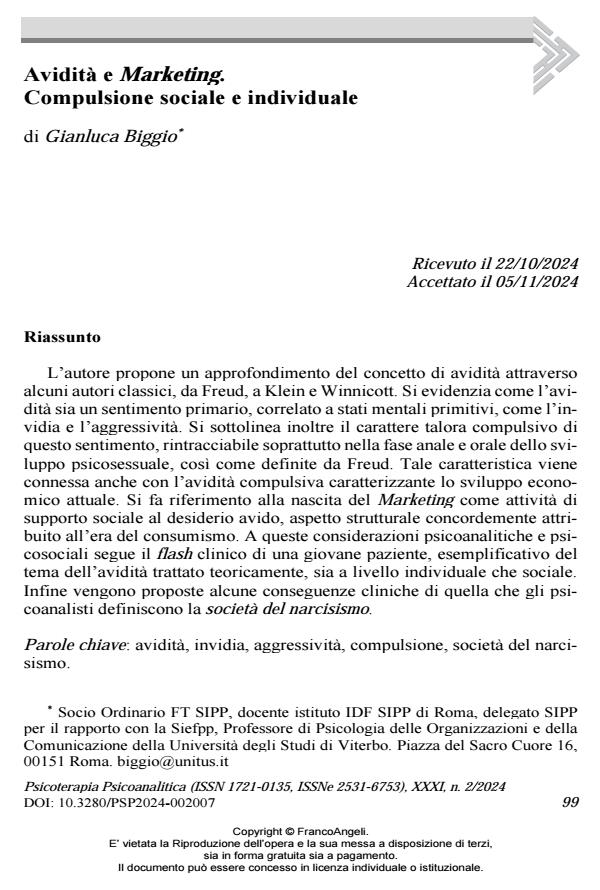Greed and Marketing: social and individual compulsion
Journal title PSICOTERAPIA PSICOANALITICA
Author/s Gianluca Biggio
Publishing Year 2024 Issue 2024/2
Language Italian Pages 12 P. 99-112 File size 185 KB
DOI 10.3280/PSP2024-002007
DOI is like a bar code for intellectual property: to have more infomation
click here
Below, you can see the article first page
If you want to buy this article in PDF format, you can do it, following the instructions to buy download credits

FrancoAngeli is member of Publishers International Linking Association, Inc (PILA), a not-for-profit association which run the CrossRef service enabling links to and from online scholarly content.
The author proposes an in-depth analysis of the concept of greed through some classical authors, from Freud to Klein and Winnicott. It is highlighted how greed is a primary feeling, related to primitive men-tal states, such as envy and aggression. In addition, the author under-lines the compulsive nature of this feeling, traceable especially in the anal and oral phase of psychosexual development, as defined by Freud. This characteristic is also connected with the compulsive greed characterizing the current economic development. Reference is made to the birth of Marketing as an activity of social support to greedy de-sire, a structural aspect unanimously attributed to the age of consumer-ism. These psychoanalytic and psychosocial considerations are fol-lowed by a clinical flash of a young patient exemplifying the theme of greed treated theoretically, both at individual and social level. Finally, some clinical consequences of what psychoanalysts define as the soci-ety of narcissism are proposed.
Keywords: greed, envy, aggression, compulsion, society of narcissism.
Gianluca Biggio, Avidità e Marketing. Compulsione sociale e individuale in "PSICOTERAPIA PSICOANALITICA" 2/2024, pp 99-112, DOI: 10.3280/PSP2024-002007